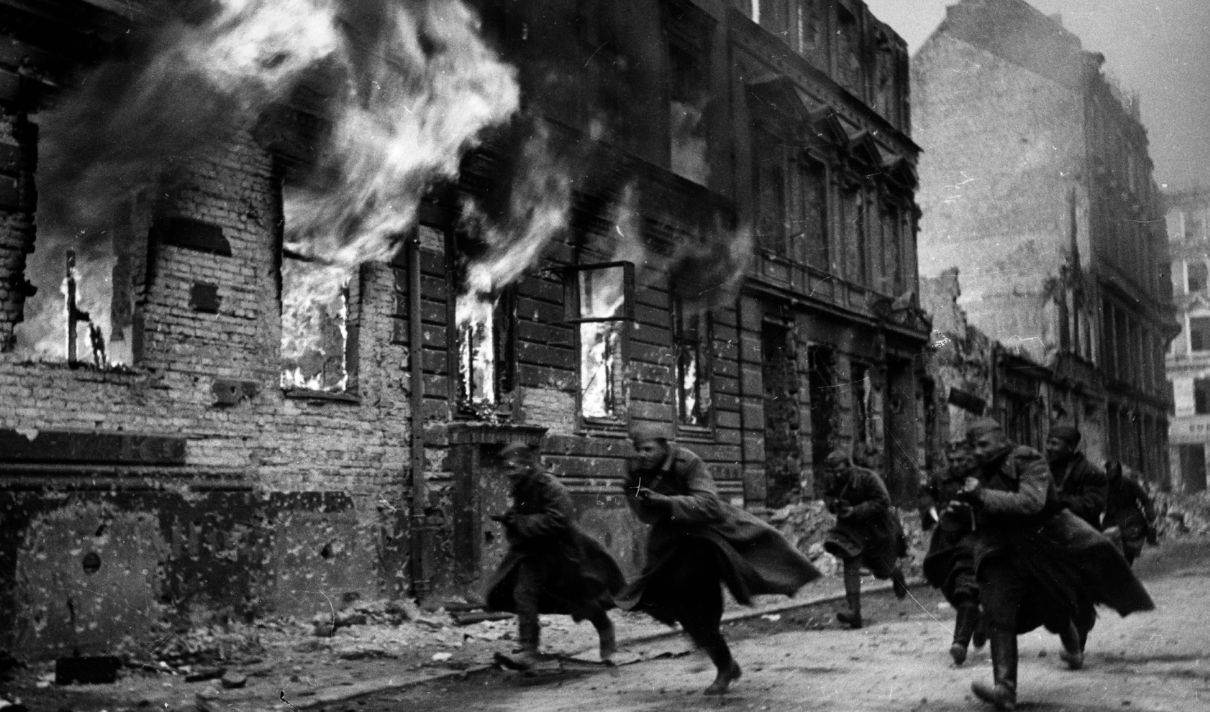Endgame 1944: the 'superb' story of a vital Second World War battle
Jonathan Dimbleby's book explores the confrontation between Stalin's Red Army and Hitler's troops

A free daily email with the biggest news stories of the day – and the best features from TheWeek.com
You are now subscribed
Your newsletter sign-up was successful
In Britain, 1944 is remembered primarily as "the year of D-Day, when thousands of British, Canadian and American soldiers waded ashore on the Normandy beaches" , said Dominic Sandbrook in The Sunday Times. Yet as Jonathan Dimbleby shows in his superb new book, what was happening "hundreds of miles to the east" was in reality even more significant. There, in an offensive known as Operation Bagration, "more than six million men of Stalin's Red Army were driving back about two million of Hitler's best troops".
"Endgame" tells the story of this epic confrontation, which Dimbleby describes as the "most brutal mega-conflict in the annals of human warfare". Although best known as a broadcaster, Dimbleby is also a first-rate historian, able to "move deftly from the broad strategic picture and the tragic details of individuals' lives". This is his fourth book about the Second World War – "Barbarossa", his last, was about Hitler's attempt to invade Russia in 1941 – and it's "his best yet".
Launched in June 1944, two weeks after D-Day, Operation Bagration "fell on the Germans like an avalanche", said Patrick Bishop in The Telegraph. The Germans, who by now were "everywhere on the defensive", were overwhelmed by the Soviets' vast superiority "of armour, aircraft and manpower".
The Week
Escape your echo chamber. Get the facts behind the news, plus analysis from multiple perspectives.

Sign up for The Week's Free Newsletters
From our morning news briefing to a weekly Good News Newsletter, get the best of The Week delivered directly to your inbox.
From our morning news briefing to a weekly Good News Newsletter, get the best of The Week delivered directly to your inbox.
Yet it wasn't all about brute force: the Soviets also made brilliant use of maskirovka, or deception tactics, including dummy tanks and radio disinformation. These ensured the Germans were "constantly wrong-footed". Although casualties were massive on both sides, Bagration was a resounding success for the Allies: in two months, the Red Army destroyed 28 of the 34 German divisions on the Eastern Front, and advanced to Poland, pushing the Germans out of much of eastern Europe.
When the savage battlefield action threatens to become "numbing", Dimbleby "ably shifts his attention to the strategists and diplomats", said Bertrand M. Patenaude in The Wall Street Journal.
For Stalin, Bagration was as much about advancing his territorial ambitions as it was about defeating Hitler. While Winston Churchill was alert to this threat, his US counterpart, Franklin Roosevelt, wasn't: his naive belief that he could "co-opt Stalin as a partner in the postwar order" enabled Stalin to get the better of him in negotiations and helped lay the foundations for the Cold War. While "Endgame" isn't perfect – Dimbleby makes a "ham-fisted" attempt to link the Eastern Front in 1944 to Putin's current actions in Ukraine – there is "much here to admire".
A free daily email with the biggest news stories of the day – and the best features from TheWeek.com